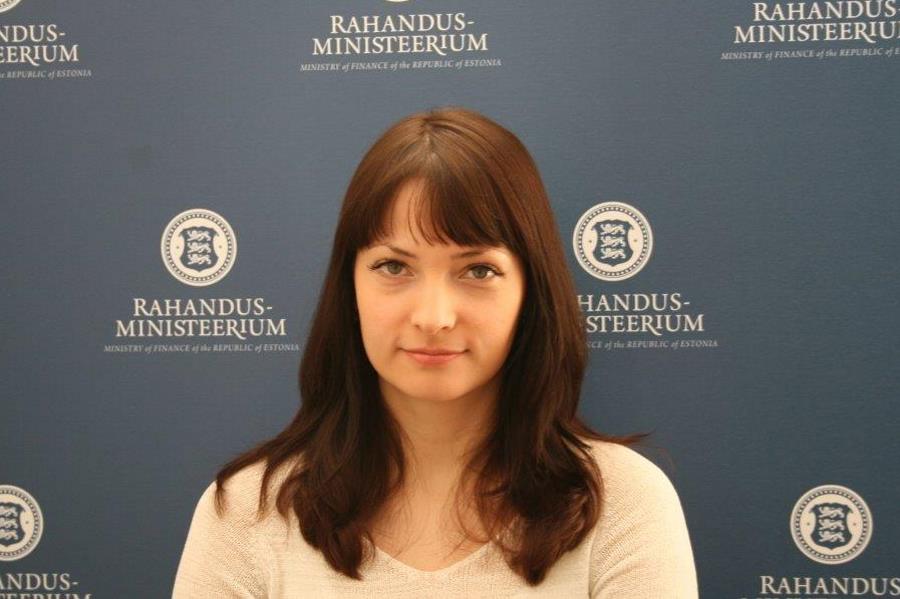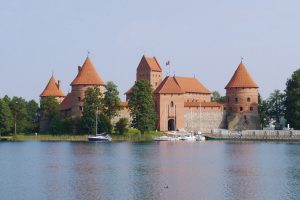“The growth of online operators is likely to continue”

(Exclusive interview).- Sören Meius, Estonia Ministry of Finance Advisor, discussed with Focus Gaming News the current situation of gaming in the country.
Estonia.- As a country that has regulated most gaming verticals since its independence, Estonia keeps rules up to date. That’s why the Focus Gaming News team reached out to Sören Meius, Estonia Ministry of Finance Advisor, to talk about the current situation of the industry amid the COVID-19 crisis and its impact on the country’s finances.
How important is the gaming industry for the Estonian state finances? How different is online gaming’s contribution in comparison with the land-based segment?
Gambling tax is paid into the state budget, yet it is specially purposed: 47,8% shall be transferred to the Cultural Endowment of Estonia, 15,3% shall be allocated for social projects, 12,7% shall be allocated for regional investment aid programme, 24,2% shall be allocated for cultural and educational projects. Revenue from lotteries accrues to the state budget and for targeted use (mainly cultural and communal subsidies).
Total tax receipts from Gambling Tax amounted to 29,8 million euros in 2019, which constitutes about 0,11% of GDP and 0,38% of total tax revenue. Whereas these indicators have been relatively stable over past 10 years. Gambling tax from online segment accounts for a little over 10% of total Gambling Tax in comparison of 43% of gaming machines (land base) and 36% of lottery tickets.
Gaming Industry paid a total of about 16 million euros other taxes (VAT, personal income tax and labor taxes) in 2019. Therefore, gaming Industry has a relatively marginal importance for Estonian state finance.
As part of the tourism/entertainment industry, land-based gaming is one of the industries that hurts the most as COVID-19 shocks the world. How big do you think the impact will be once the crisis is finally over? Are you planning any relief measures for this specific market?
It would be difficult to predict what the impact will be, nor how long the crisis would last. Even though there are solid signs that the growth of the disease has stopped, impact to the economy whole, let alone on one relatively small sector, is almost impossible to evaluate. We see that those sectors that have been already internet-based or used it for marketing or delivery, are in a relatively better position. Still, the population’s ablity to spend on any form of entertainment is seriously affected as unemployment is on a rise.
On the implementation of COVID-19 measures in Estonia – there are no direct measures for specifically applicable to only Gambling Industry, although those companies are already included under current general supportive measures. For example, labor market support measure by the Estonian Unemployment Insurance Fund, where Casinos have been one of the biggest applicants and also beneficiaries.
Does an increse in online gaming as land-based venues temporarily close concern the government? Do you think the pandemic’s aftermath will involve players turning to the iGaming vertical and leave traditional gaming behind?
Due to the generally attractive environment, the growth of online(remote) gambling operators is likely to continue in 2020-21 as well. Traditional gaming is forecasted gradually to recover to its normal level. We don’t think this implies for a major concern, but definitely an uncertainty (or risk) exists in terms of traditional gaming.
Online gambling operators are likely to continnue to grow in 2020-21
Sören Meius, Estonia Ministry of Finance Advisor.
What are the main regulation challenges for a country that has tried to keep gaming legislation up to date ever since its independence?
The main regulatory challenge for this very active and innovative sector has been the continous evolvement of gaming: the “classic” games have changed and more and more new and hybrid types of gaming is surfacing. Also the issue of how to define gambling and new forms of gaming- how to regulate and how to provide that the addiction level would not rise, while enabling the legal operators to interact with the gamblers and respond to their constant drive to find new and exciting games.
Do you look to other markets in Europe (and the world) to try and take the best from them to improve Estonia’s? Which ones do you see as role models and where do you think Estonia would rank regarding best gaming regulation?
We find that the regulators have to be in constant dialogue with the local market and the Estonian Gaming Operator Association (EGOA) has been a good partner for us. Estonian regulators also consult with other regulators in Europe and elsewhere. The Estonian approach to the regulation has been that we first and foremost concern ourselves with our own market and operators/gamers and local communities. The idea is, that there is a lot of tradition involved in a country’s gambling environment: for example – bingo halls, which are quite popular in some countries are non-existent in Estonia. While we deem ourselves as culturally connected and “likeminded” with other Nordic countries – horseracing and totalizators are not popular here at all. There are also interesting differences between younger and older people’s gambling behaviour etc.
The best gaming regulation diminishes negative socio-economic impact that is associated with extensive gambling, while ensuring that the service – as one type of entertainment – is available through legal and regulated offer to responsible gamblers. And, yes, of course, it is easier to say than to deliver. But we try our best.
The Gambling Act of 2008 has been flexible and reasonable
Sören Meius, Estonia Ministry of Finance Advisor.
What about cryptocurrency and online gambling with crypto assets? What’s the government’s approach to it?
Our supervisor – the Estonian Tax and Customs Board- has said that cryptocurrencies can be accepted as long as the Gambling Act is followed. I do not know, if any of Estonian operators are currently accepting cryptocurrencies as payment, but we have had several enquiries about it. As some cryptocurrencies are highly volatile, it might have been hard to convert: stakes and winnings are still calculated in Euros.
Do you see any potential updates to gaming regulations in Estonia coming in the near future?
Fortunatley, it seems that the Gambling Act of 2008 has been flexible and reasonable, as there have been only minor changes over the years. In most cases we can overcome the problems or issues through interpretation of law and the amendments to existing framework have so far not been on the political agenda. Of course, COVID-19 crisis might affect all regulated activities, including gambling. We have some proposals regarding promotional lotteries, we will see, if there is any additional need for changes in near future.











